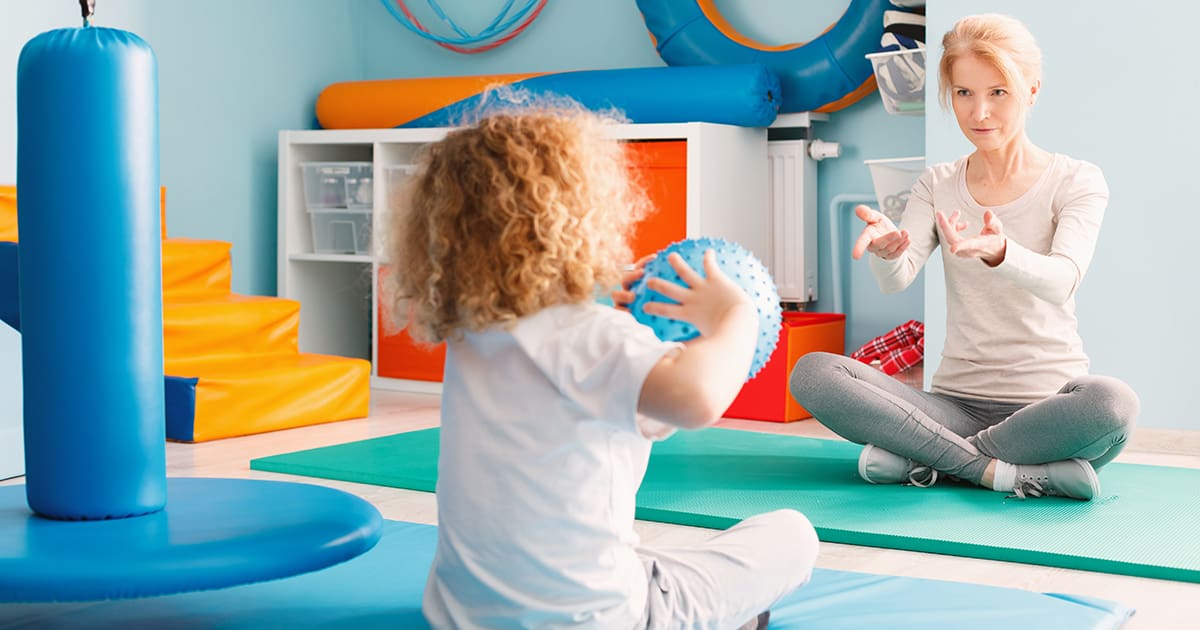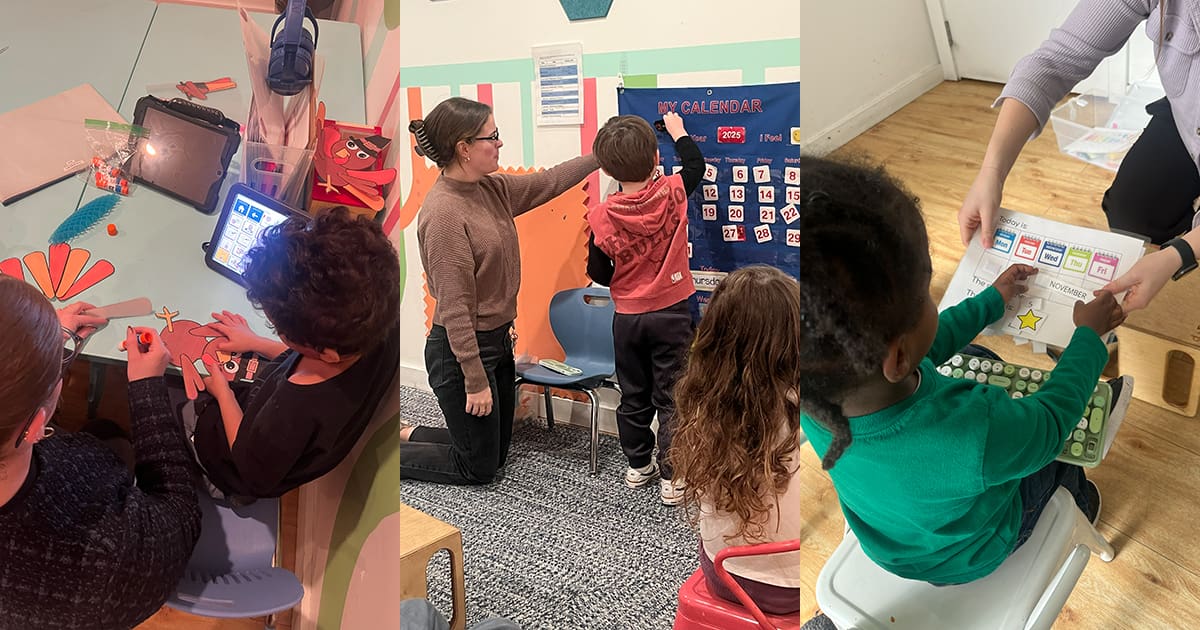Share this Post

Early childhood is a time of incredible growth, discovery, and learning. For some children, developmental delays in motor skills, sensory processing, or self-care can make everyday activities more challenging. That is where occupational therapy (OT) plays a vital role in therapeutic preschool programs like CST Academy.
Occupational therapy helps young children develop the skills needed for independence, school readiness, and social success. By integrating OT into a preschool setting, children receive targeted, play-based support to build their motor skills, sensory regulation, and self-care abilities in a natural and engaging environment.
What is Occupational Therapy in a Therapeutic Preschool?
Occupational therapy focuses on helping children gain the skills they need to participate in daily activities, such as playing, interacting with peers, using utensils, getting dressed, and managing sensory input. In a therapeutic preschool setting, OT is seamlessly incorporated into the classroom, giving children multiple opportunities throughout the day to develop and refine essential skills.
Unlike traditional preschool programs, a therapeutic preschool integrates OT into daily routines, ensuring that children receive consistent, hands-on practice in real-life situations. Through structured play, guided activities, and therapist-led interventions, children learn how to strengthen their motor coordination, regulate their emotions, and increase their independence.
How Occupational Therapy is Integrated into a Therapeutic Preschool Program
At CST Academy, licensed occupational therapists (OTs) work closely with educators and other specialists to create an environment where every child can thrive. Our child-centered approach ensures that occupational therapy is both engaging and effective, fostering development in a natural and supportive way.
1. Developing Fine Motor Skills for School Readiness
Fine motor skills involve small muscle movements, such as holding a pencil, buttoning a shirt, or using scissors. In a therapeutic preschool, occupational therapy provides structured activities to strengthen hand and finger muscles, improve coordination, and develop the dexterity needed for future academic tasks.
Some of the ways fine motor skills are developed include:
- Building hand strength through playdough, beading, and finger painting
- Practicing writing and drawing with adapted tools for proper grip development
- Using everyday tasks such as zipping jackets and opening snack containers to encourage independence
By incorporating these activities into a preschool environment, children gain confidence and readiness for kindergarten and beyond.
2. Enhancing Gross Motor Skills for Coordination and Strength
Gross motor skills involve large muscle movements, such as running, jumping, balancing, and climbing. These skills are essential for physical activity, posture, and coordination. Occupational therapy in a therapeutic preschool helps children improve their balance, core strength, and movement control, which contributes to both play and classroom participation.
Therapists integrate gross motor skill development by:
- Encouraging obstacle courses and movement games to improve coordination
- Using balance beams, trampolines, and swings for sensory and motor integration
- Teaching body awareness activities to help children move confidently through their environment
By refining gross motor skills, children gain the confidence and physical strength they need to actively engage with their peers and navigate daily life.
3. Supporting Sensory Processing for Self-Regulation
Many children struggle with sensory processing challenges, making it difficult to regulate emotions and reactions to their environment. A therapeutic preschool setting with occupational therapy provides structured opportunities to help children manage sensory input in a safe, supportive way.
Occupational therapists work with children on:
- Sensory integration activities, such as swinging, jumping, and deep pressure exercises
- Helping children adjust to different textures, sounds, and movement experiences
- Teaching calming techniques, such as breathing exercises and fidget tools, to promote emotional regulation
By incorporating sensory-friendly strategies throughout the day, children learn to process sensory input effectively, reducing frustration and improving focus.
4. Encouraging Independence in Self-Care Skills
Self-care skills, also known as activities of daily living (ADLs), include dressing, feeding, toileting, and personal hygiene. These everyday tasks help children become more independent and confident in their abilities.
Occupational therapists in a therapeutic preschool support self-care development by:
- Teaching handwashing, dressing, and toileting routines in a structured way
- Using visual schedules and step-by-step instructions to break down complex tasks
- Encouraging children to practice feeding skills, such as using utensils and opening food containers
Developing self-care skills not only increases independence but also builds self-esteem, allowing children to feel more capable and confident.
5. Fostering Social Participation and Play Skills
Occupational therapy goes beyond motor skills and self-care—it also plays a role in developing social and play skills. Young children learn best through play, and therapeutic preschool settings provide structured opportunities to develop communication, teamwork, and cooperation.
Occupational therapists help children with:
- Turn-taking and cooperative play to build social connections
- Recognizing facial expressions and body language to improve social awareness
- Problem-solving and flexible thinking to encourage adaptability in play
By supporting social development, occupational therapy helps children navigate interactions with peers, promoting stronger friendships and confidence in social settings.
Why Occupational Therapy in a Therapeutic Preschool is So Effective
Integrating occupational therapy into a preschool setting offers unique benefits that promote long-term success. When children receive OT as part of their daily routine, they experience more consistent practice, reinforcement, and opportunities to generalize skills in real-life situations.
Some of the key benefits include:
- Early intervention leads to better long-term outcomes by addressing challenges before they impact school and daily life
- Hands-on, play-based learning helps children develop skills in a fun, natural way
- Increased social opportunities allow children to practice communication and peer interactions in a structured setting
- Consistent therapy throughout the day reinforces learning and development
By incorporating occupational therapy into a therapeutic preschool, CST Academy ensures that children receive the support, encouragement, and skill-building opportunities they need to thrive.
Is a Therapeutic Preschool with Occupational Therapy Right for Your Child?
If your child is struggling with motor skills, sensory processing, self-care tasks, or social interactions, a therapeutic preschool program with integrated occupational therapy may provide the structured support they need.
At CST Academy, we are dedicated to helping each child develop the skills they need for success in school, social settings, and everyday life. Our team of licensed occupational therapists, educators, and specialists work together to create an engaging, supportive learning environment where children can reach their full potential.
If you would like to learn more about how occupational therapy in a therapeutic preschool setting can benefit your child, contact CST Academy today. We would love to help guide you through the process and create a plan tailored to your child’s needs.
Discover Our Pediatric Therapy & Autism Care
ABA Therapy
Support for children with autism.
Autism Evaluation
Expert assessments to identify child needs.
Pediatric Therapy Services
Speech, Occupational, Feeding, and Physical Therapy.
Therapeutic Preschool
A classroom environment designed for early learners with unique needs.

Find the Best Care for Your Child




